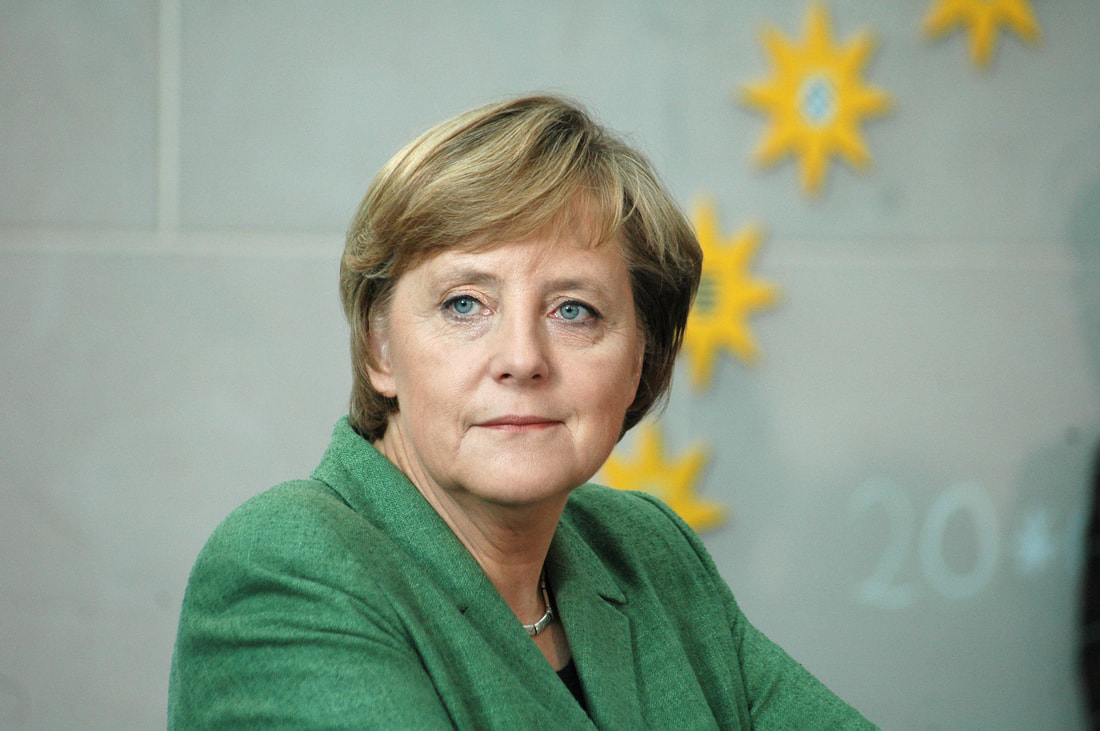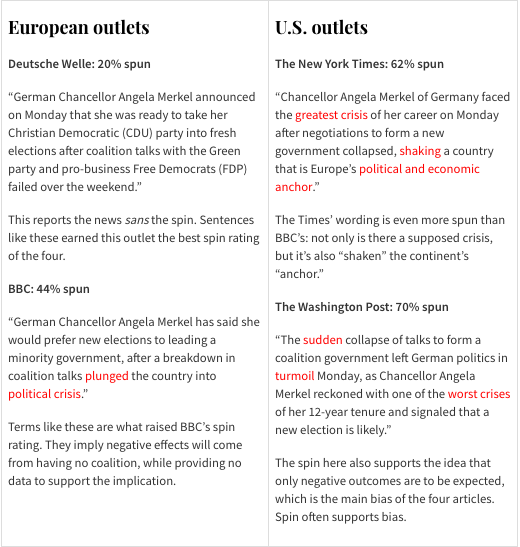|
NEWS ALERT! There’s been some more “collapsing” of plans and “plunging into crisis” in Europe — in Germany, to be exact. If you’re not entirely sure what that means, it may be for good reason. Dramatic, subjective and vaguely defined terms like those in red create strong impressions that aren’t backed by much data. So if you were asked to explain what these terms mean, you might be grasping for straws. See how much drama that just brought in? That’s how spin works. We looked at the latest coverage of German politics, and noticed some outlets employed more spin than others. What happened is German politicians didn’t reach agreement to form a coalition, and although this has effects for the country and Europe, the U.S. outlets took more creative license in describing it. Here’s a visual comparison of each article’s lead sentence, which is representative of how the outlets ranked in our spin ratings. Let the red lead the way. Lead sentences make for a great comparison because they capture the essence of the news. Leads are also important in that, after headlines, they’re likely the first thing you read, so they can affect the way you take in the rest of the information.
Spin can at times be entertaining and, as noted earlier, it can create powerful impressions, but it does little to inform. In this sense, it may be best reserved for opinion and analyses, rather than news reports. Comments are closed.
|
Jens Erik GouldJens is a political, business and entertainment writer and editor who has reported from a dozen countries for media outlets including The New York Times, National Public Radio and Bloomberg News Archives
February 2018
Categories
All
|


 RSS Feed
RSS Feed